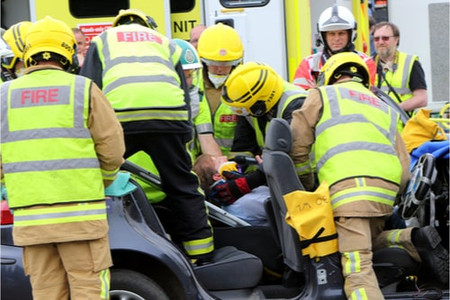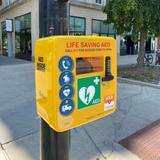Vehicle fire safety
Vehicle fires can be deadly, although according to a 2019 study, vehicle fires have reduced by 20% since 2011 (Home Office), 100,000 cars catch fire every year on UK roads causing major problems and danger to people’s safety. With roughly 100 people dieing every year due to vehicle related fires, it is important to know how to avoid vehicle fires and what to do should you ever experience one.
Although some car fires are caused due to collisions, many fires are caused due to inadequate electrical wiring, cigarettes being left in cars and unfortunately a percentage of the time due to criminal activity and vandalism. To avoid the financial and health risks associated with a vehicle fire, there are number of simple steps you can follow to ensure your car is always safe.
Factors such as where you leave your car overnight or whilst out for the day at work can be something to consider. Avoid badly lit areas and places without CCTV as thieves relish on not being seen when wanting to cause damage. Something else to think about is to remember to never leave your key in the ignition even when popping into the shop or house.
Always close all windows and the sun roof when leaving your car and lock the doors and boot remembering to take your keys with you. Fitting anti-thief devices and making sure your car has a working alarm is important, as well as hiding your property when leaving your car such as bags and shopping.
Maintenance of your vehicle is also a really important factor to consider to keeping it safe from fires. Always routinely check fuel lines for signs of undue wear whilst also checking electrical wiring. It is important to be careful when looking at electrical wiring as you should be aware of bad connections and poor installation - all electrical wiring should be done be a professional and qualified mechanic.
Always be prepared for the worst, keep a small fire extinguisher in your car should anything happen. It is also important to remember that if welding, never have an open flame near a fuel tank. Spilled oil under the bonnet from an oil change can also be a fire hazard so looking out for this is also key.
If an emergency should happen and you notice smoke and flames or smell a fire whilst in the vehicle, knowing what to do next can save lives. You must pull over immediately to the nearest place possible at the side of a road and turn off the engine. Evacuate everyone from the vehicle and release the bonnet but do not open it. Call the emergency services on 999 and warn oncoming traffic if safe to do so with hazards and an emergency cone if you have one.
It is important to remember to never use water on an engine fire if trying to put flames out, if you have one you should always use a dry powder or foam extinguisher (BS EN3).
The spread of flames can happen very quickly, particularly if your car has set on fire due to an electrical fault, because of this it is important that you do not attempt to rescue any belongings from your car. Overall, when ensuring fire safety in your vehicle, make sure you regularly check the car’s electrics, always park in a safe place and use common sense by not leaving your keys in the ignition.
Recent Posts
-
Empowering Communities: The Lifesaving Impact of CPR on Restart a Heart Day
Every year, on and around October 16th, an important event takes place - Restart a Heart Day. This a …16th Oct 2023 -
Which home defibrillator?
80% of all out of hospital cardiac arrests occur at home. Defibrillators are often available in loca …4th Dec 2022 -
Which defibrillator should I buy?
There are many defibrillators available on the market and it can become overwhelming knowing which o …4th Nov 2022




